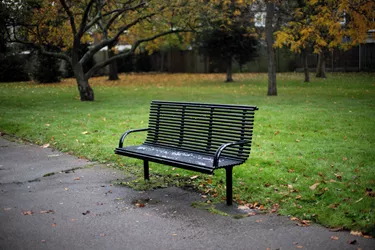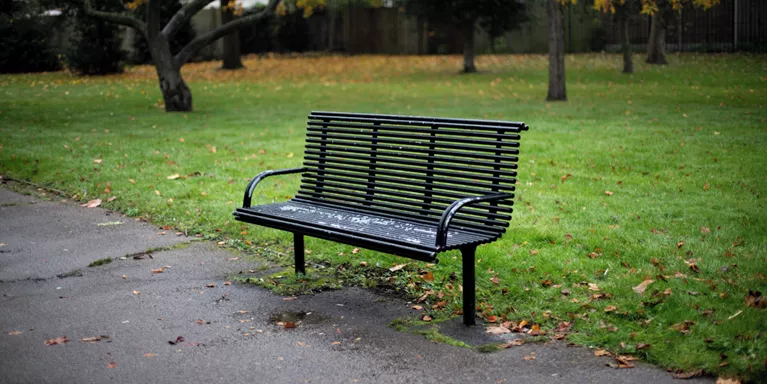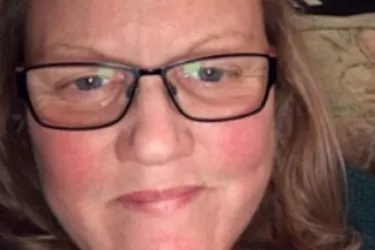School damaged my mental health
In Mental Health Awareness Week, Joe blogs about how the education system let him down and why he’s fighting for better mental health support in schools.
Walking through the exit of my school for the last time brought a great feeling of relief. I no longer had to deal with the bullying that ruined each day. For many of my fellow students, this marked the closure of the most enjoyable chapter of their lives, but not for me.
My experiences from school stayed with me throughout my time at university, negatively affecting my mental health.
But despite having left school, it was more difficult to break the emotional connection. Perhaps it shouldn’t have been such a surprise that I struggled with my self-esteem after persistent ridicule that had become deeply ingrained over several years.
My experiences from school stayed with me throughout my time at university, negatively affecting my mental health. Even after eight years, I believe that many of my present anxieties come from my time in school. My school days have given me an understanding of the lack of mental health support in the education system that can leave many young people feeling abandoned. Now, as a member of Mind’s Youth Voice Advisory Panel, I’m determined to help change that.
How the bullying began
I started high school with a close group of friends. The dynamics of the group changed and I found myself increasingly isolated. The bullying began with dismissive comments and progressed to attacks on my personality with the aim of destroying my self-confidence.
I’d spend every lunch break in the library pretending that I was doing my homework
This was made worse by the rise of social media, which meant I couldn’t leave my struggle at the school gates. While I tried to maintain an untroubled exterior, frequently reminding myself of the famed ‘sticks and stones’ rhyme, it was clearly damaging my mental health.
Physical violence might leave visible bruising for a while but a vicious sentence can leave a lasting mental scar. During the last couple of years of high school, I’d spend every lunch break in the library pretending that I was doing my homework to avoid the embarrassment of aimlessly walking around the corridors to pass the time. I became increasingly lonely, distrustful and insecure.
This led to the loss of motivation, lack of interest in pursuing my hobbies, and withdrawal from socialising, providing the ideal climate for anxiety and depression to thrive.
Some of my teachers made things even worse by putting me alongside the most disruptive students in the classroom. The idea was that I would have a calming effect on these students, but it just left me open to humiliation at the hands of attention-craving show-offs.
My class participation was linked to my academic ability which was even more demoralising, resulting in me being placed in sets that didn’t provide stretching work. The absence of obvious physical symptoms made it challenging for teachers to realise the impact that school was having on my wellbeing.
Seeking external mental health support
Few teachers could see past my unshaken appearance. The bullying was ignored and I didn’t receive support as I was seemingly untroubled. This has made me aware of the distress that can be hidden behind a smile. It felt like my experiences were dismissed because my behaviour was not seen as problematic. In the end, I had to seek external mental health support as the school was unable to provide the reassurance that I needed to manage my anxiety. It felt wrong that the people who had the most potential to help, i.e. my teachers, didn’t have any role in providing support.
The failure to intervene at an early stage can allow issues to escalate into adulthood. They can become an entrenched part of your identity, damaging career prospects and relationships, leading to an ongoing struggle to find a sense of self-worth.
My social anxiety determined the course of my life for a number of years. I was reluctant to take up new opportunities, meet new people and live my life to the full extent. I became reliant on therapy and medication to reduce the stresses of everyday life. The turning point came with my graduation from university.
The opportunities that I’ve had over the past couple of years has restored some of my self-assurance.
I had developed a coping mechanism by channelling my energy towards studying and exceeded my own expectations, opening up the possibility of having the career that I wanted to pursue. I left university and moved to London determined not to allow my life to be defined by previous challenges. I still have mental health problems, but the opportunities that I’ve had over the past couple of years has restored some of my self-assurance.
School is such a critical time in shaping who we become. It’s the launch pad that sets the course for our future. It’s essential that mental health is given the focus that it deserves in schools as the consequences of ignoring it can echo far beyond the confines of the classroom.
While school was in many ways the source of my mental health issues, it could have been the solution, if I had received the right support. Sadly, this didn’t happen but there’s always the potential for a culture change to give mental health the same prominence afforded to the traditional timetable. This could include better teacher training, wellbeing lessons, peer support groups and in-house services to enhance awareness, and end the stigma around mental health. I’ve helped to shape Mind’s strategy on some of these issues during my time as a member of the Youth Voice Advisory Panel and I’m eager to continue to advocate for a better approach to mental health in schools.
With youth mental health problems increasing and the knowledge that most issues are established by the age of 24, it’s vital that the support system in schools is improved to reduce the chance of mental health problems arising in the first place.


Information and support
When you’re living with a mental health problem, or supporting someone who is, having access to the right information - about a condition, treatment options, or practical issues - is vital. Visit our information pages to find out more.
Share your story with others
Blogs and stories can show that people with mental health problems are cared about, understood and listened to. We can use it to challenge the status quo and change attitudes.

















